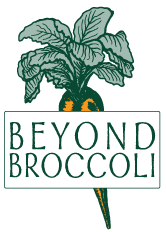I am no stranger to the genre of Food Industry Horror Stories, both in book and film forms. Eric Schlosser’s Fast Food Nation was my first plunge into the seamy underside of our industrialized food system and its myriad cultural implications. Sadly many others have expanded on Schlosser’s work, including the latest contribution from investigative journalist Michael Moss called Salt, Sugar, Fat – How the Food Giants Hooked Us.
Moss shares what he learned from food industry researchers and executives themselves about how foods are specifically designed to entice people to eat past the point of normal fullness; calculated “bliss points” are used for added sugars, just the right texture and amount of salt for a “flavor burst” to maximize the rush to the brain’s pleasure centers upon hitting the tongue, and fats that add both flavor and a quality called “mouthfeel” – a powerful combination that does not seem to trigger messages to stop eating.
For those of us who encourage our clients to work towards normal or “intuitive eating” rather than restrained eating, Moss’ reminder about the many foods engineered to derail this internal system is both frustrating and important. People who struggle with compulsive overeating, binge eating, or restricted eating that stems from fear they will not be able to stop eating once they begin, at some point need to know that their behaviors are not entirely emotionally based or a sign they are somehow bereft of willpower. This is exactly what food manufacturers want all of us to do – eat what they produce, in excessive amounts, and often. These so-called Food Giants also spend billions of dollars to market highly processed, ultra-palatable foods, and to make sure they are available nearly everywhere we go.
My hope is that the information in Moss’ book will help us be more aware when we eat processed foods, knowing they are deliberately hard to resist overeating. If this deeper understanding about how processed foods are made and marketed so we will eat more helps us let go of the guilt that often comes with eating these foods, particularly if we eat more than we planned to, then I am all for this type of consumer education.
I am concerned however, that yet another of these dire warnings about our food system will reinforce rigid all-or-nothing thinking about what we eat (or don’t eat) based on fear. It is one thing to strive for more whole or minimally processed foods that support good health and another to be so fearful of processed foods that when our options are limited and that is the only food available, we either don’t eat at all, or we are overly anxious while eating (not good for digestion or absorption of nutrients not to mention the increased release of damaging stress hormones).
I guess I’m a bit of an idealist in that I prefer to inspire change rather than jam it down people’s throats with a heavy dose of fear. But I have to admit, I like the idea that when we eat more whole foods and prepare more of our meals at home rather than outsourcing this important work to big food companies (restaurants, ready-prepared or frozen meals in grocery stores, etc.) we are effectively rebelling against a modern food system in dire need of repair.


